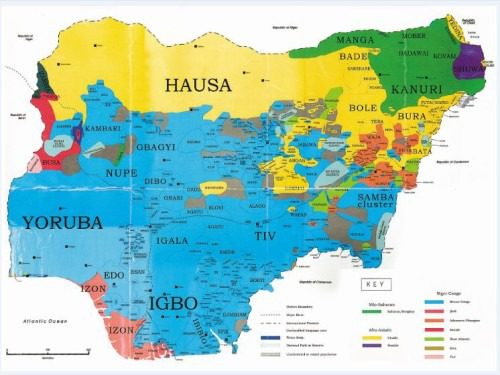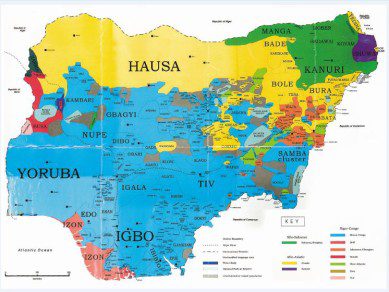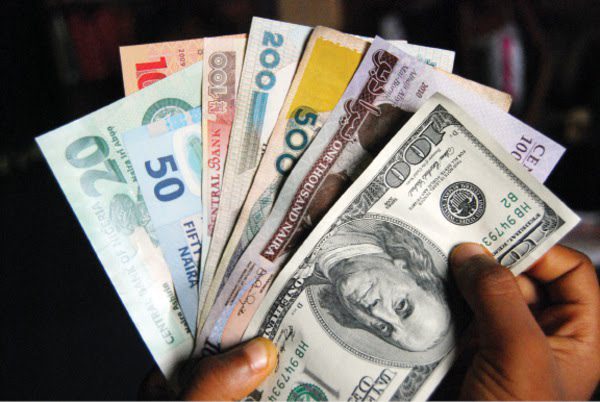National Issues
Of Meritocracy and Marginalisation In Nigeria -By Chris Ngwodo


Now, he is being accused of ethnic bias in his appointments. This argument itself is a nonstarter. Under our system, all political appointees serve at the pleasure of the president. The paramount consideration should be how well they serve his agenda not how well they represent subnational constituencies. The task of representation is vested in the legislature which exists to check the executive. A more advanced democratic consciousness would levy more emphasis on the quality of those in the National Assembly than on the president’s appointments.
In the end, it is hardly surprising that President Muhammadu Buhari’s appointments have provoked a distressingly familiar tortured conversation about identity in Nigeria, yet charges of ethnic bias require closer scrutiny. Given the reaction to the diversity or lack thereof of Buhari’s appointments thus far, the question has to be asked: Is Nigeria a nation of two halves (North and South); or of over 250 ethnic communities; or of 36 states; or of 6 geopolitical zones; or is it an ethnic tripod composed of the Hausa, Yoruba and Igbo; or is it a religious biped standing on the twin pillars of Islam and Christianity? Or is it all of the above?
Identity in Nigeria is a complex equation but in order for vested interests to sustain the political war cry of marginalisation, they must invoke the crudest, most simplistic and reductionist definitions of Nigeria – usually in terms of the fabled North-South dichotomy. The war cry of marginalisation requires the persistence of the myth of a monolithic North even though the North is more ethnically diverse than the South. The insistence on defining all Nigerians born above the Niger in generic terms as “Northerners” while refusing to acknowledge their diversity smacks of something akin to racism. An often willfully ignorant commentariat has not been pressed to explain how Buhari, a Fulani Muslim from Katsina, is guilty of ethnic bias by appointing a Kilba Christian from Adamawa.
Debates over marginalisation are a bottomless pit. Buhari’s traducers will always shift the goalposts for their own ends. For years, Buhari was dogged by accusations that he is an Islamic extremist – a smear that finally expired during the recent election. Now, he is being accused of ethnic bias in his appointments. This argument itself is a nonstarter. Under our system, all political appointees serve at the pleasure of the president. The paramount consideration should be how well they serve his agenda not how well they represent subnational constituencies. The task of representation is vested in the legislature which exists to check the executive. A more advanced democratic consciousness would levy more emphasis on the quality of those in the National Assembly than on the president’s appointments.

Let us leave aside the factually accurate argument that Buhari’s few appointments thus far, out of the several thousands he is expected to make, is too small a statistical sample with which to allege ethnic bias with any kind of certainty. The constitution does stipulate that every state should be represented in the federal cabinet. This in itself is a needless over-emphasis on representation at the expense of performance and inflates the size and cost of government. Even so, the president retains considerable latitude in recruiting for positions outside the federal executive council.
There is quite clearly a new sheriff in town but the administration has failed to adequately communicate the new rules of engagement and the operating worldview that should frame the parameters of public expectation. Simply put, the administration needs a philosopher. Had the administration spelt out its intention to prioritise competence above prebendal considerations of ethnic spread, it is unlikely that it would now have to be defending itself against allegations of ethnic bias.
The president is elected to undertake the job of national leadership and it is his prerogative to pick a team that he believes can best execute his plan. While real politik may demand that a president balances his requirement of personal trust and confidence in his appointees with patronage and the need to reflect diversity, Buhari, a conviction politician, appears to place a greater premium on personal trust than any other factor, and there is absolutely nothing wrong with that.
The blame for this debacle should be laid at the doorsteps of this administration’s so far substandard communications apparatus. There is quite clearly a new sheriff in town but the administration has failed to adequately communicate the new rules of engagement and the operating worldview that should frame the parameters of public expectation. Simply put, the administration needs a philosopher. Had the administration spelt out its intention to prioritise competence above prebendal considerations of ethnic spread, it is unlikely that it would now have to be defending itself against allegations of ethnic bias. Because it is operating in a philosophical and informational vacuum, the administration is expending energy in rearguard actions after the fact rather than setting the tone and agenda of public discourse. It is inconceivable that the presidency’s spokesmen would not have anticipated the reaction to the appointments.
The current controversy over appointments represents a teachable moment, an opportunity in which to highlight the administration’s commitment to running a meritocracy and stimulate a sophisticated debate about identity, federal character, quotas, affirmative action without having it degenerate into an inter-ethnic dogfight. The presidency has been unable to seize the moment quite possibly because some of its leading elements are not certain of the ramifications of “progressive change” and to what extent the principal will go in pursuing that change.
The argument for ethnic spread is a euphemism for rent-seeking and sharing the national cake. It is about enshrining an equal opportunity kleptocracy and promoting an ecumenical guild of thieves into high office to eat allegedly on behalf of their ethnic and religious constituencies. It is impossible to confront endemic graft without addressing the institutionalised format of prebendal leadership recruitment that promotes corruption.
This controversy is also an unedifying commentary on the Nigerian condition. It is instructive that neither the quality of appointees nor Buhari’s three-month delay in assembling his team has elicited as much outrage as the perceived lack of diversity in his appointments thus far. Not even the absence of an overarching economic agenda in a time of economic crisis and incipient austerity has provoked the commentariat. Without a doubt, we would not be having these conversations if we truly believed that government is about public service rather than self-aggrandisement. This, after all, is a country in which certain cabinet positions are shamelessly described as “juicy” or “lucrative” appointments.
The argument for ethnic spread is a euphemism for rent-seeking and sharing the national cake. It is about enshrining an equal opportunity kleptocracy and promoting an ecumenical guild of thieves into high office to eat allegedly on behalf of their ethnic and religious constituencies. It is impossible to confront endemic graft without addressing the institutionalised format of prebendal leadership recruitment that promotes corruption. Surprisingly, this administration which claims a strong commitment to fighting corruption has failed to articulate the connection between corruption and prebendal patronage disguised as “inclusive” government.

The pursuit of inclusive governance through ethnic tokenism is misguided. Nigerians do not require a sense of belonging from the federal government through the appointment of their kinsmen to high office; they need a sense of performance from government at all levels. In this regard, the obsessive focus on federal appointments is at the expense of serious scrutiny of state governments which have a more direct impact on the people. If we were truly interested in governance, state governors would be subjected to microscopic inspection. Instead, for the most part, they are allowed to be indolent while bizarrely claiming the right to nominate appointees to the federal cabinet.
It is true that many latter day advocates of meritocracy are opportunists merely espousing a belief in the ideal because Buhari’s initial appointments favour their constituencies. Even so, the case for a meritocracy is unimpeachable. This is not naïve idealism; it is the only sane conclusion after four decades of ecumenical looting of the national treasury.
The absurdity of this system is illustrated by Plateau State Governor, Simon Lalong’s recent visit to Buhari. While Plateau State has been wracked by bloody conflict between the Berom and the Fulani, Lalong’s main concern, as he told reporters, was to find out why David Paradang (a native of Plateau State), had been removed as Comptroller-General of the Immigration Service. Even as demonstrators staged a week-long protest against the killings on the Plateau, the governor in whose state Nigeria’s next major national security crisis is brewing, is obsessed with irrelevancies. A state governor who (like many of his peers) cannot pay his state’s civil servants without federal subventions was asking the president why he had relieved a federal civil servant of his job, the basis for his intervention being the idea that Paradang was there to represent his state rather than to undertake a national assignment.
It is true that many latter day advocates of meritocracy are opportunists merely espousing a belief in the ideal because Buhari’s initial appointments favour their constituencies. Even so, the case for a meritocracy is unimpeachable. This is not naïve idealism; it is the only sane conclusion after four decades of ecumenical looting of the national treasury. Well-intentioned realistic polemicists argue that given Nigeria’s sociopolitical psychology, Buhari should have endeavoured to ensure more ethno-regional spread in his appointments just to avoid the sort of hue and cry that has since erupted. The answer to this is that a nation as direly in need of change and effective governance as ours does not require a leadership that panders to its basest instincts.
The logic of ethnic solidarity and ethnic representation as a basis of guaranteeing good governance has always been questionable. In reality, the political elite use ethnic mobilisation to get into high office and become self-serving from that point on. If this were not the case, several parts of Nigeria would have benefitted from their sons and daughters in government positions at various times.
Creating an authentic federal order in which oil ceases to be at the epicentre of governance and in which states and municipalities are forced to generate wealth from locally-sited resources will decisively reorient our politics, moving it away from rent-seeking to actual governance, from distribution of spoils to the provision of developmental deliverables.
Equal opportunity thievery has always meant that public functionaries were insured against censure or even prosecution for their misdemeanours by their ethnicity or creed. Buhari’s posture suggests a break from this odious tradition but it also means raising the bar of performance. Having failed to meet the standard of equal opportunism essayed by vested interests, this administration’s appointees will now be judged solely by their conduct. Without the indemnity of ethnic or religious identity, they must simply perform or go. This development can only be good for Nigeria.
At the putrid core of this sordid debate is the conception of public office in a rentier economy. The fact that government positions are seen as sinecures has to do with the centrality of oil wealth in our political economy. As long as this is the case, these kinds of debates will continue to our collective detriment. Creating an authentic federal order in which oil ceases to be at the epicentre of governance and in which states and municipalities are forced to generate wealth from locally-sited resources will decisively reorient our politics, moving it away from rent-seeking to actual governance, from distribution of spoils to the provision of developmental deliverables. Public office will finally become synonymous with public service. This progressive change will have been long in coming.
Chris Ngwodo is a writer, analyst and consultant; chrisngwodo.blogspot.com.ng
















